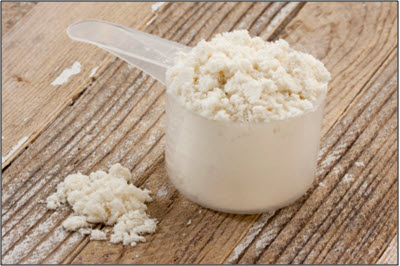Whey Protein for a Happier Heart
New research published by scientists from the United Kingdom’s University of Reading suggests that whey protein may help to enhance cardiovascular health 1.
Published in the American Journal of Clinical Nutrition, this research confirmed that whey protein may lower cholesterol levels and regulate blood pressure. These actions can reduce the risk of heart disease and stroke.
Where does whey protein come from?
Whey comes from milk together with another protein called casein. Whey is nutrient rich, containing all nine essential amino acid.
Considered a ‘complete’ protein, whey has key amino acid building blocks for muscle synthesis and other functions essential for the body.
Many elite athletes that require significant strength use whey protein to build-up muscle mass and endurance. This protein is also used by people trying to lose body fat due to whey’s satiety effects.
Research findings
Thirty-eight people completed the University of Reading study. All participants were aged between 30 and 77 and presented with mildly elevated blood pressure. The trial parameters included a double-blinded, randomized, 3-way–crossover, controlled intervention study.
Each person was randomly assigned either 54g maltodextrin (control), 56g of whey protein or 56g of calcium-caseinate (casein) for a period of eight-weeks. A washout period of four weeks was also included in the trail. Participants’ blood pressure was measured, as well as blood lipid profiles.
Researchers recorded a decrease in blood pressure associated with participants who consumed whey during the study. This included both central systolic and peripheral pressures. No significant changes were noted in the control patients.
At commencement of this trial, participants presented with a blood pressure range of 120 (systolic) over 80 (diastolic) to 159 (systolic) over 99 (diastolic) mm haemoglobin (Hgb). After whey protein consumption blood pressure decreased by 3.9 Hgb. Diastolic blood pressure reductions of 2.5mm Hgb were measured within 24 hours.
Researchers also found a positive correlation between casein and whey protein and cholesterol levels. Total cholesterol levels reduced by 5% in these patients. However, decreased triacylglycerol concentrations where only associated with those participants who consumed whey protein.
Elevated triglyceride levels increases the risk of heart disease. Lifestyle adjustments that can lower triacylglycerol concentrations and improve blood pressure can help to enhance cardiovascular health.
Researchers concluded that whey consumption reduced the risk of cardiovascular disease by 8% for participants in their trial.
What are the implications of whey protein on cardiovascular health?
 There have been several studies confirming a reduction in blood pressure associated with milk consumption2. These observations are believed to be due to the interactions between Angiotensin-Converting Enzyme (ACE) and whey.
There have been several studies confirming a reduction in blood pressure associated with milk consumption2. These observations are believed to be due to the interactions between Angiotensin-Converting Enzyme (ACE) and whey.
ACE is a regulatory enzyme that controls fluid volumes within the body and subsequent blood pressure. Whey appears to influence ACE to lower blood pressure.
These observations were observed during the University of Reading study, whereby whey protein had a much stronger effect on ACE when compared to the control and calcium-caseinate.
Whey protein also has a hypocholesterolaemic effect, reducing cholesterol levels within the body3,4,5 This response is due to the lactoferrin component of whey. This compound stops the oxidation of low density lipoprotein6. This can help to protect the body from developing heart disease.
The benefits of whey protein supplements
The initial findings of the University of Reading study support the idea that whey protein may help to reduce bad cholesterol levels and/or better regulate blood pressure.
Nevertheless, further research is necessary. While some studies do support these findings, there is also conflicting research arguing that excessive consumption of whey protein is damaging to the body. A good rule of thumb is 1 protein shake per day with roughly 20-30g of whey protein powder. The rest of your diet should be as whole and balanced as possible.
People who are physically active and looking to enhance their physique may find whey protein supplements ideal for building muscle mass and strength. However, this is not recommended for everyone. Prior to adding whey supplements to your diet, consult with a medical practitioner to ensure suitability and dietary guidelines.
References
- “Fekete, A. et.al. (2016).Whey protein lowers blood pressure and improves endothelial function and lipid biomarkers in adults with prehypertension and mild hypertension: results from the chronic Whey2Go randomized controlled trial. The American Journal of Clinical Nutrition. doi: 10.3945/ajcn.116.137919.” ↩
- “Jauhiainen, T. and Korpela, R. (2007). Milk Peptides and Blood Pressure. The Journal of Nutrition. Volume 187, Issue 8 (pp. 8255-95).” ↩
- “Nagaoka, S. et.al. (1990). Effects of Whey Protein and Casein on the Plasma and Liver Lipids in Rats. Agricultural and Biological Chemistry. Volume 55, Issue 3.” ↩
- “Zhang, X and Beynen, A. (1993). Lowering effect of dietary milk-whey protein v. casein on plasma and liver cholesterol concentrations in rats. British Journal of Nutrition. Volume 70, Issue 1, (pp. 139-46).” ↩
- “Kawase, M. et.al. (2000). Effect of Administration of Fermented Milk Containing Whey Protein Concentrate to Rats and Healthy Men on Serum Lipids and Blood Pressure. Volume 83, Issue 2, (pp. 255-63).” ↩
- “Kajikawa, M. et.al. (1994). Lactoferrin inhibits cholesterol accumulation in macrophages mediated by acetylated or oxidized low-density lipoproteins. Biochimica et Biophysica Acta. Volume 1213, Issue 1, (pp. 82-90).” ↩






